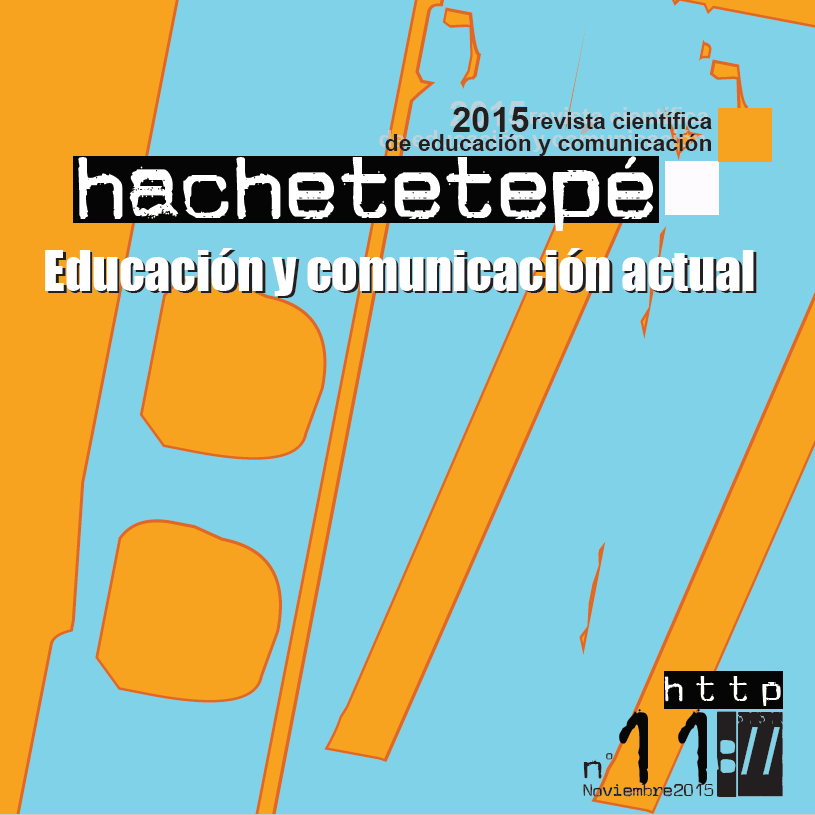The permanent communication. When technologies will no longer be new

Info
Abstract
Digital communication can generate knowledge fostering a progress never happened before in human history or (it is the dominant practice today) it can help creating the accumulation of power in very few hands supporting the spread of ignorance. The digital computer and the digital nature are destined to meet each other when the current new technologies will be incredibly old. As well as the imaginary and the real. The augmented reality is only the prehistory of this. To get to the point and benefit for the future of our humanism is necessary to overcome the current opposition/contrast between symbolic and physical processing, working on a vision generating communication and focusing on the relationship between inner and mental text and the empirical and social one.
Keywords
Downloads
How to Cite
License

This work is licensed under a Creative Commons Attribution-NonCommercial-NoDerivatives 4.0 International License.
Those authors who have published with this journal, accept the following terms:
- They will retain their copyright and guarantee the journal the right to first publication of their work, which will simultaneously be subject to the Creative Commons Attribution License . They may be copied, used, disseminated, transmitted and publicly displayed, provided that the authorship, url, and magazine are cited, and are not used for commercial purposes. No derivative works are allowed.
- They may adopt other non-exclusive license agreements for the distribution of the published version of the work (e.g., deposit it in an institutional telematic archive or publish it in a monographic volume) provided that the initial publication in this journal is indicated.
- Disseminate your work through the Internet (e.g., in institutional telematic archives or on your website) once the manuscript is accepted, which may lead to interesting exchanges and increased citations of the published work. (See The effect of open access).
Hachetetepé. Scientific journal of education and communication does not charge a fee for the submission of manuscripts or for the publication of its articles.
References
Amendola, M.; Antonelli, C. & Trigilia, C. (Coord.) (2005). Per lo sviluppo. Processi innovativi e contesti territoriali. Bolonia: Il Mulino.
Anichini, A.; Boffo, V. & otros (2012). Comunicazione formativa. Percorsi riflessivi e ambiti di ricerca. Milán: Apogeo.
Baker, S. (2006). Sustainable Development. Londres: Routledge.
Bocchi, G.& Ceruti, M. (Coord.). (1985). La sfida della complessità. Milán: Feltrinelli.
Caroli, M. G. (Coord.) (2011). Il marketing territoriale: idee ed esperienze nelle regioni italiane. Milán: FrancoAngeli.
Carù, A. & Cova, B. (2007). Consuming Experience. Nueva York: Routledge.
Castells, M. (2009). Communication Power. Oxford: Oxford University Press.
Communication Strategies Lab (2012). Realtà aumentate. Esperienze, strategie e contenuti per l’Augmented Reality. Milán: Apogeo.
Ferraresi, M. & Schmitt, B. H. (2006). Marketing esperienziale. Come sviluppare l'esperienza di consumo. Milán: FrancoAngeli.
Getz, D. (2008). Event Tourism: Definition, Evolution and Research. Tourist Management, 29; 403-428.
Gramsci, A. (1975). Quaderni del carcere. Vol. 4. Turín: Einaudi.
Grossi, R. (2014). Cultura. L’alternativa alla crisi per una nuova idea di progresso. 10° Rapporto annuale
Federculture 2014, Milán: 24 Ore Cultura.
Marshall, A. (1890). Principles of Economics. Londres: Macmillan and Co.
Morin, E. (1999). Les Sept savoirs nécessaires à l'éducation du future. Parigi: UNESCO
(http://unesdoc.unesco.org/images/0011/001177/117740fo.pdf) (15-10-2015).
Luhmann, N. (1975). Macht. Stuttgart: Enke.
Ostrom, E. (1990). Governing the Commons: The Evolution of Institutions for Collective Action. Cambridge:
Cambridge University Press.
Ostrom, E. & Hess, C. (Coord.) (2006). Understanding Knowledge as a Commons: From Theory to Practice. Cambridge: MIT Press.
Sennett, R. (2008). The Craftsman. New Haven and Londres: Yale University Press.
Stiglitz, J. E., Sen, A., Fitoussi, J. P. (2010), Mismeasuring Our Lives: Why GDP Doesn't Add Up. The Report, Nueva York, The New Press
Toschi, L. (2011). La comunicazione generativa. Milán: Apogeo.
Toschi, L. (2014). La comunicazione sostenibile. Prolegomeni ad una comunicazione formativa. In-formazione, IX(12); 9-30
Toschi, L. (2015). Generative Communication for Cultural Heritage. Towards a New Paradigm of Resources, en
Bambi, G. & Barbari, M. (Coord.). The European Pilgrimage Routes for promoting sustainable and quality tourism in rural areas. International Conference proceedings. 4-6 December 2014. Florencia: Firenze University Press (http://www.fupress.com/catalogo/the-european-pilgrimage-routes-for-promoting-sustainable-and-quality-tourism-in-rural-areas/2947) (15-10-2015).
UNESCO, (2005). Towards Knowledge Societies. Paris: UNESCO Publishing (http://unesdoc.unesco.org/images/0014/001418/141843e.pdf) (15-10-2015).
UNWTO, (2015). World Tourism Barometer and Statistical Annex, April 2015 (http://www.e-unwto.org/doi/abs/10.18111/wtobarometereng.2015.13.2.1) (15-10-2015).

